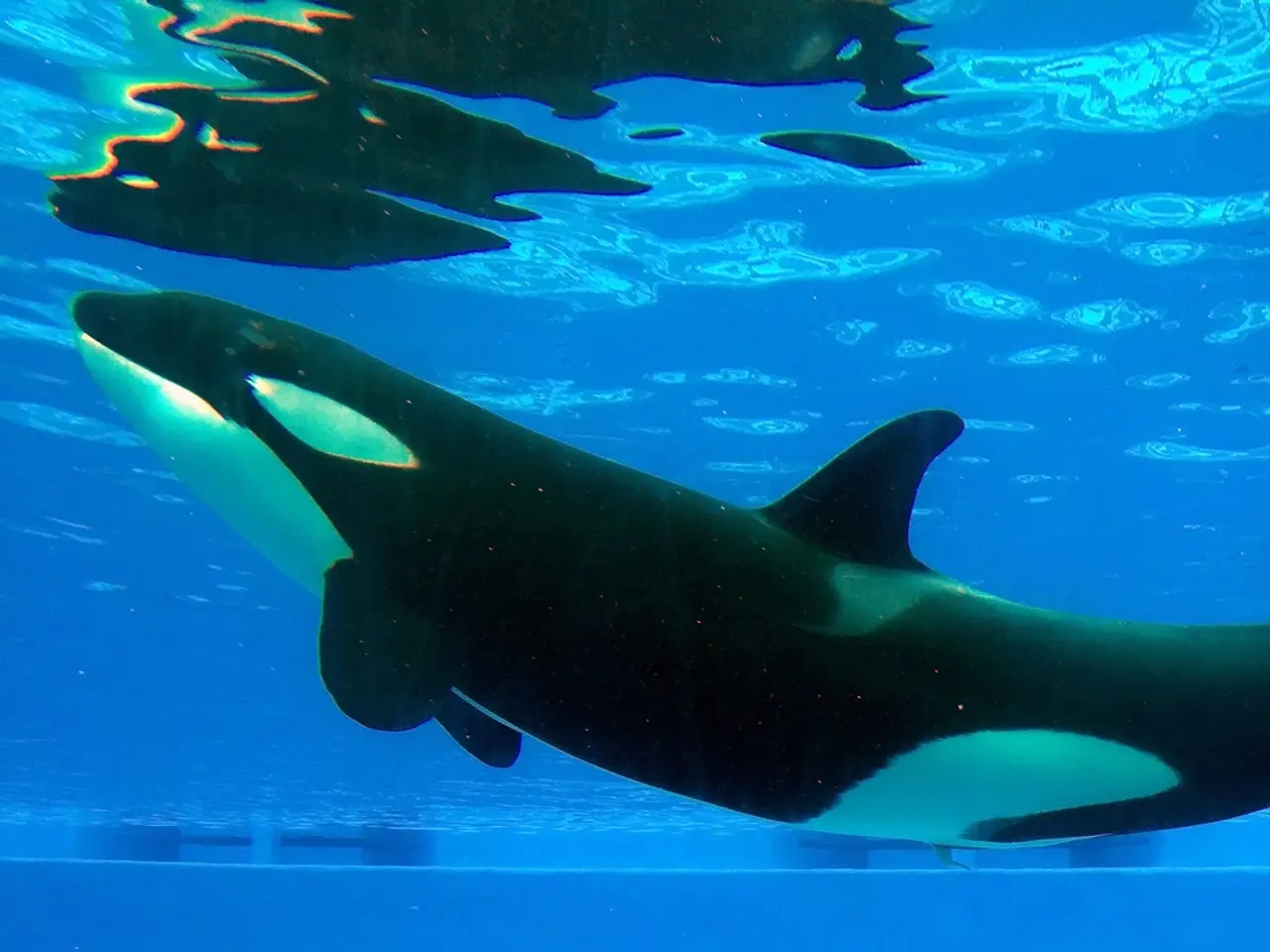The Methodology of Whale Hunting Expeditions
Whaling: The Raging Battle Between Conservation and Commerce
For centuries, humanity has been chasing after the mighty whale, a pursuit that's as old as time itself. Initially sparked by sheer survival, whaling expanded into a lucrative industry once monetary gains took center stage. Fast-forward to the present, and the debate surrounding the right to hunt whales remains a contentious issue, with the International Whaling Commission's (IWC) ban on commercial whaling being hotly contested.
In today's world, most countries have put an end to whaling for profit, but some still argue for its continued existence under the banner of scientific research. However, many anti-whaling groups, such as Sea Shepherd Conservation Society and Greenpeace USA, strongly condemn this practice, claiming countries like Japan are skirting the global law that's kept commercial whaling at bay for over two decades.
The question, then, is whether Japan is truly whaling for scientific purposes or simply finding loopholes to continue commercial whaling in disguise.
Our focus here is to delve into the history, evolution, and ongoing struggle to enforce the IWC's ban on commercial whaling in the face of such controversies. Let's start by exploring why these colossal creatures of the sea became a target for our hunting expeditions.
As we unravel the complexities surrounding whaling, we find ourselves caught in a web of interests. At the heart of the controversy is Japan's persistent use of the scientific exemption, which critics allege is used as a smokescreen to continue commercial whaling.
The International Convention for the Regulation of Whaling (ICRW) allows whaling for scientific research, despite a moratorium on commercial whaling. Japan has been the primary player in this realm since 1988, with critics accusing them of capitalizing on this exception to sell whale meat on the black market, effectively circumventing the ban’s intent[1][4].
The ethics of modern whaling and its impact on whale populations form another contentious issue. Many organizations point to the cruelty involved in the hunt and the toll it takes on already vulnerable species. Despite claims of more humane hunts, questions about prolonged suffering remain[1][5]. Moreover, pro-whaling governments' sustainability claims face scrutiny as conservationists stress the need to protect whales from commercial exploitation that's sometimes disguised as science.
The ICRW's lack of robust enforcement mechanisms, relying instead on diplomatic pressure, has resulted in friction within the international community and among conservation groups. They view Japan's scientific whaling as a potential loophole that weakens global whale protection norms[1].
In essence, the debate revolves around Japan's continued whaling under the guise of scientific research, a practice aimed at exploiting whales commercially and undermining international conservation regulations. This practice is vigorously opposed by groups like Sea Shepherd, Greenpeace USA, and other conservationists, who argue against the ethical dilemmas surrounding animal welfare, the sustainability of whale populations, and the integrity of global whaling regulations[1][4].
- The ongoing controversy over whaling in Japan is centered around the use of the scientific exemption, which critics claim is a stratagem to disguise commercial whaling andbypass the ban on commercial hunting.
- Groups like Sea Shepherd and Greenpeace USA strongly oppose Japan's whaling practices, arguing that the country capitalizes on the scientific research exception to sell whale meat on the black market, undermining the ban's original intent.
- Pro-whaling governments' claims of sustainability face considerable scrutiny as conservationists emphasize the necessity to protect whales from commercial exploitation that often masquerades as science.
- The lack of robust enforcement mechanisms in the International Convention for the Regulation of Whaling (ICRW) has led to friction within the international community and among conservation groups, who view Japan's scientific whaling as a potential loophole that weakens global whale protection norms.







